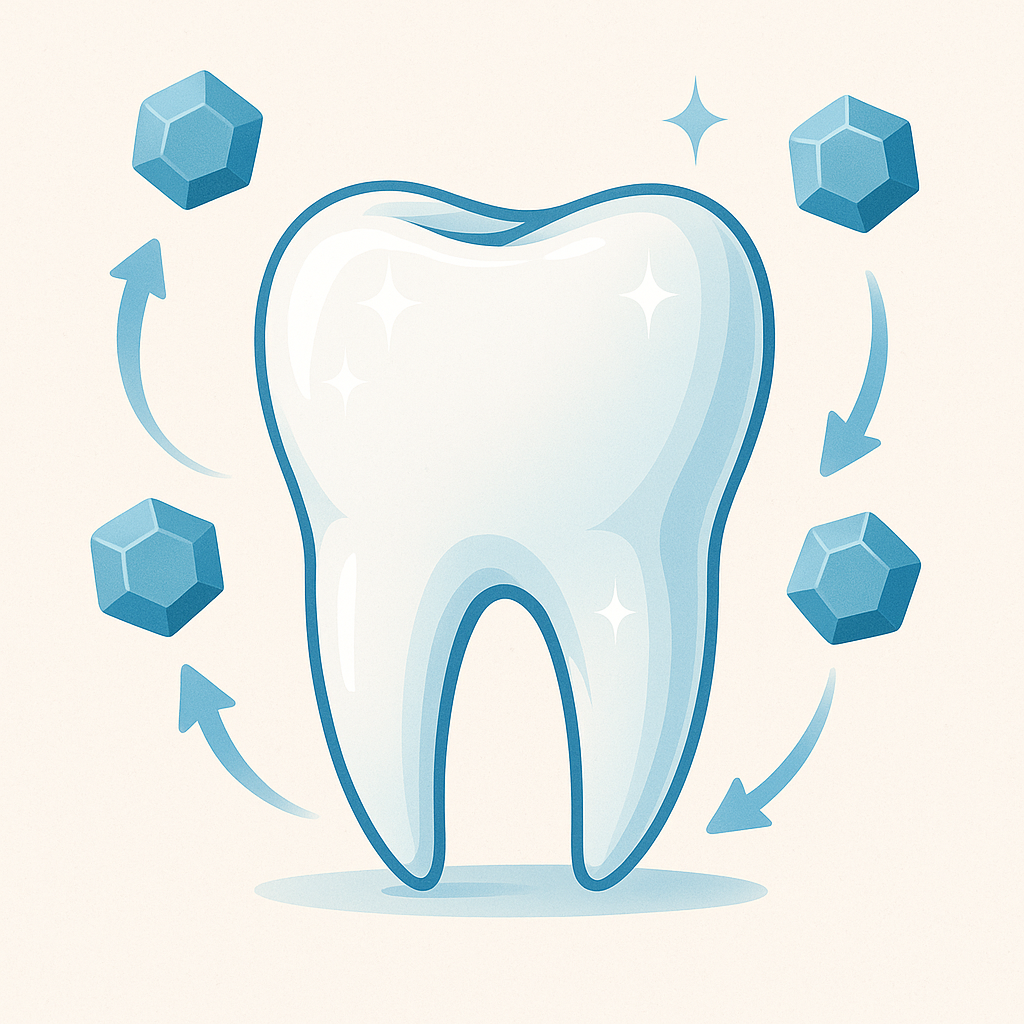TL;DR: Fluoride is a safe, natural mineral that strengthens enamel, prevents cavities, and is one of the most effective ways to protect your dental health at every age.
Fluoride is a naturally occurring mineral found in soil, rocks, and many water sources across the world. In dentistry, it’s one of the most important tools we have for preventing tooth decay.
In fact, fluoride is often called “nature’s cavity fighter” because it works with the minerals in your saliva to strengthen enamel and stop bacteria from breaking it down.
Tooth decay happens when bacteria in your mouth feed on sugars from food and produce acids. Over time, these acids break down the minerals in enamel, creating weak spots that can eventually turn into cavities.
Fluoride helps at every stage of this process:
That’s why we recommend fluoride for both children and adults—it protects developing teeth and keeps permanent teeth strong throughout life.
Here in Minnesota, we see firsthand how access to fluoride makes a difference. Communities with fluoridated water have fewer cavities in both children and adults compared to those without it.
In Roseville and many parts of the Twin Cities, fluoride has been added to municipal water supplies for decades. This simple public health measure has saved families countless trips to the dentist for fillings and extractions.
For patients in rural Minnesota who may rely on well water, the story can be different. Well water doesn’t always contain enough fluoride. That’s why I often recommend testing well water and using supplements if necessary.
Most people get fluoride from a combination of:
At Designing Smiles, I often apply fluoride varnish after cleanings for patients at higher risk of cavities—it’s a quick, painless step that gives extra protection.

Yes. When used at recommended levels, fluoride is both safe and effective. Decades of research—including studies right here in the U.S.—show that fluoride does not increase the risk of conditions like cancer, heart disease, or arthritis.
The only potential side effect of too much fluoride in children under 8 is a cosmetic condition called dental fluorosis. This appears as faint white streaks or spots on teeth, usually very mild and only noticeable by a dentist.
It is possible, but in the U.S. it’s very rare.
The U.S. Public Health Service recommends 0.7 mg/L of fluoride in drinking water—enough to protect teeth but far below harmful levels.
You may have heard concerns about fluoride lowering children’s IQ. Here’s what the science actually says:
The bottom line: Fluoride at U.S. levels is safe for children and essential for cavity prevention.
One of the best examples of public health success is Grand Rapids, Michigan, which became the first U.S. city to fluoridate its water in 1945. Within ten years, children there had 60% fewer cavities.
Here in Minnesota, data continues to show that fluoridated water reduces the need for costly dental treatments—especially for children. The CDC estimates that every $1 spent on fluoridation saves $38 in dental treatment costs.
As a dentist in Roseville, I always remind patients that oral health is part of overall health. By using fluoride daily, you’re not just protecting your teeth—you’re saving yourself from pain, expense, and missed work or school.
Practical tips for families:
Fluoride remains one of the simplest, most cost-effective ways to protect your smile. Whether it’s in toothpaste, drinking water, or a quick application at the dental office, fluoride helps strengthen teeth, fight bacteria, and reverse early decay.
At Designing Smiles in Roseville, MN, we’re committed to helping patients of all ages maintain strong, healthy smiles for life. If you have questions about fluoride or want to know if you’re getting the right amount, schedule a consultation—we’ll be happy to guide you.
